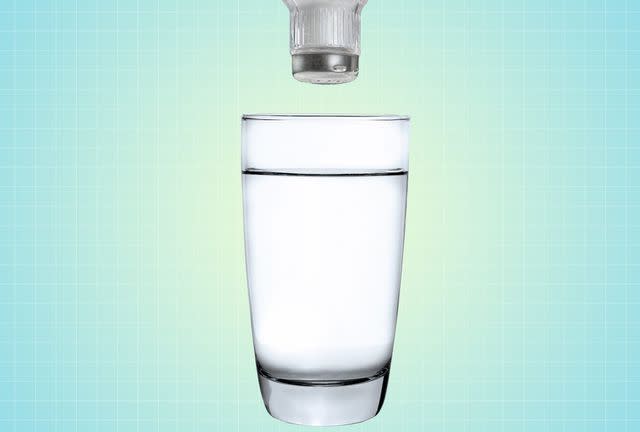Does Adding Salt to Your Drinking Water Help with Hydration?
You might be asking, so we’re answering this question.
Reviewed by Dietitian Emily Lachtrupp, M.S., RDReviewed by Dietitian Emily Lachtrupp, M.S., RD
In the summer heat, it's important to stay quenched by drinking water and incorporating hydrating foods into your meals. But you may have seen the recent social media trend where influencers add salt to their water and claim that it helps quench their thirst and stay hydrated for longer due to replacing electrolytes.
Is this true, and should we all be adding salt to a glass of water in the middle of the heat wave? Here's what to know and consider before trying this trend.
Related: What Is Pineapple Tea & Can It Help Relieve Allergies?

Does Adding Salt to Water Help with Hydration?
First, it's important to note that when we talk about mixing salt into water, it's only a small amount of salt being added to the glass. Just a pinch of salt is supposed to hydrate you and provide other benefits (the social media trend suggests using Celtic or Himalayan salt due to its minerals, but there isn't a significant nutritional difference between these salts and table salt).
Here's the truth: Adding salt to your water has both pros and cons. If you're especially active and are sweating a lot while working out, salt can help you quickly feel recharged. This is because sodium is an electrolyte, a mineral that can help keep the amount of water in your body balanced so you stay hydrated for longer periods of time.
However, while sodium is an electrolyte, you're probably already consuming enough sodium in your diet, according to the Food and Drug Administration's guidelines. So adding more sodium in your water might cause negative side effects if you're already exceeding the recommended daily intake, such as bloating, headaches and even worsening your thirst. Instead, try focusing on consuming other electrolytes like potassium, magnesium and calcium in your eating pattern.
Related: Why Drinking Water All Day Long Is Not the Best Way to Stay Hydrated
The Bottom Line
Should you add salt to your water? Unless you're working out, sweating profusely and need a quick source of electrolytes, this trend is not a necessary way to help you stay hydrated. Check out these best and worst hydration drinks for diabetes and, if you're looking for water-packed foods, these no-cook dinners can help you stay hydrated on hot days.
Up next: 15 Hydrating Snacks to Pack for the Beach
Read the original article on Eating Well.

